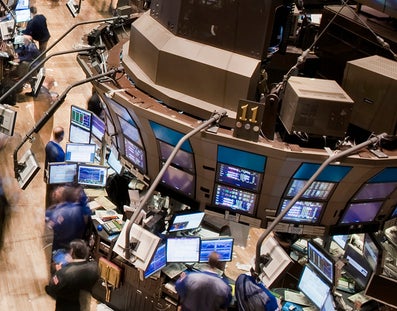You will explore how global power is shifting, how economic globalization interacts with geopolitics, and how these dynamics shape national politics and international cooperation. The programme examines the effects of globalisation on the world economy, the formation of international coalitions, and the role of institutions such as the World Bank and the World Health Organization. Special attention is given to how politicians, diplomats, multinational corporations, and NGOs negotiate and cooperate in an increasingly interconnected world.
Through a blend of theoretical knowledge and practical research skills, you'll be well-prepared to tackle the pressing political challenges of our time.
Methodological training: You will refine your skills in both qualitative and quantitative methods. Familiarize yourself with relevant research traditions and the latest developments in the field. Work on case studies in small groups, apply research methods, formulate research questions, and collect and analyse data.
Independent research: Conduct high-quality social scientific research. Write research papers, essays, and literature reviews, and practice public speaking. Engage in class discussions and presentations, and receive intensive coaching through tutorials and workshops.
Masterâs Thesis: In the final phase of the programme, you will design and carry out your own research project, culminating in a Masterâs thesis supervised by one of our internationally acclaimed lecturers.
Understand the dynamics of global power and economic influence
Subjects
- Masterâs Thesis in International Relations: Geopolitics and Global Political Economy
- Core Debates in Political Science
- Advanced Political Analysis
- Selected Issues: Global Political Economy and Geopolitics
- Political and Policy Research: Philosophy and Design
- Applying Qualitative and Quantitative Methods in Political Science
- Workshop in Geopolitics and Global Political Economy
Please consult the for more information
The Master's programme
Our comprehensive one-year Masterâs programme is designed to immerse you in the world of political science through six dynamic periods:
Period 1 (September-October): Dive into the core debates of political science. Familiarize yourself with key theories and big questions, and apply these insights to contemporary cases alongside your fellow students.
Period 2 (November-December): Choose two from four specialist subjects and engage with key contemporary issues through ongoing scientific debates:
- Contemporary Democratic Politics
- Global Environmental Politics: Actors and Institutions
- Global Political Economy and Geopolitics
- International Security Studies
Period 3 (January): Take a short course on the philosophy, design, and practice of political research. Gain the theoretical tools to prepare for your thesis, formulate hypotheses, and collect and analyse data in small groups.
Period 4 (February-March): Practice conducting research within your specialization through Workshop courses. Refresh and advance your knowledge of qualitative and quantitative methods, and apply them to your chosen topic.
Periods 5 & 6: Devote yourself entirely to your Masterâs thesis, supervised by our international team of researchers. Design and conduct your own research project, culminating in an original and well-researched thesis.
Graduate with a competitive edge: Gain a holistic view of todayâs complex political environment and understand the interconnectivity between key players - from governments and multinationals to NGOs and social movements. Acquire expertise in global politics, environmental governance, and political institutions. Develop skills in analysis, data collection, independent research, writing, and persuasive argumentation.
Change your future with the Political Science programme
A whole range of career paths is open to you when you graduate. Your analytical skills to think critically and grasp societal complexity, your capacity to conduct independent research and clearly communicate results to different audiences, and your deep knowledge and understanding of various fields in international politics, governance and decision-making are competencies that you can apply across diverse job activities.
